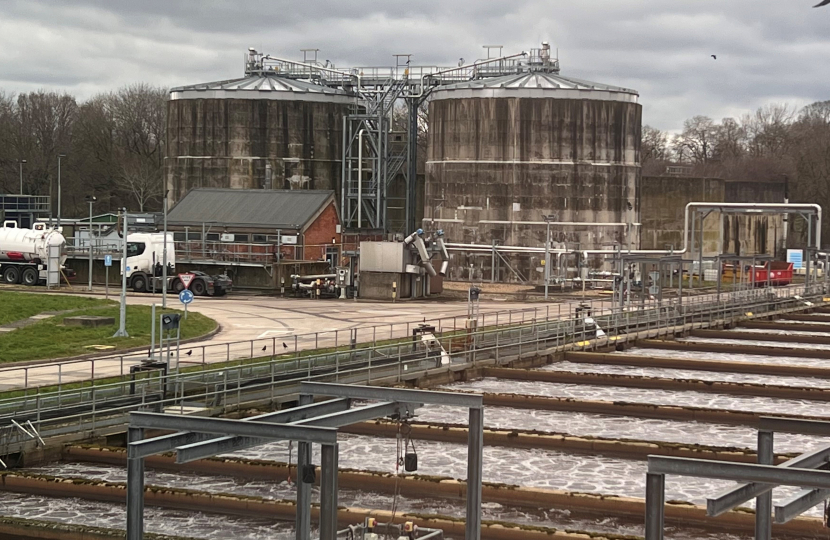Maria Miller visited the sewage works in Basingstoke again to investigate reports of storm overflows and to discuss the impact of new housebuilding. Storm overflows including in Basingstoke are now reported online thanks to changes made by this Government which started in 2010.
Maria said, ‘’Thanks to the changes brought in by this Government over the past decade we now know there have been 4 storm overflows into the Loddon so far in 2023. Any storm overflows are totally unacceptable and Thames Water – the organisation who run the sewage plant – must now plan to prevent them completely under new law passed last year.
‘’Thames Water, explained that recent discharges were due to a period of unusually heavy rainfall. With climate change leading to more severe weather events Thames Water need to, thanks to the change in the law, start to plan to eliminate storm water overflows in all their sites.
“In Basingstoke we are fortunate that our sewage works is one of the best-performing facilities in the Thames Basin, having the capacity to treat 752 litres of wastewater per second. In normal times, around 250 litres of sewage pass through the plant per second, leaving a significant amount of headroom. Only in exceptional circumstances, such as we saw in January, the system becomes overwhelmed and semi-treated sewage is released into the river as an overflow.
‘’That said, we must have a zero-tolerance approach to storm overflows. It was welcome that the recent Environment Act will bring consent levels down in rivers across the county. Here in Basingstoke, the Loddon will have the lowest possible consent level; a reflection of its rare status as a north-flowing salmonoid chalk stream and it being host to an array of wildlife and waterfowl. Failure to meet these consent levels could now result in criminal or civil investigations being opened against the water company responsible.
‘’It was clear from the meeting that significant concerns remain about Basingstoke’s current housebuilding levels. Over 20 years ago, the Loddon was identified as a constraint to the future growth of Basingstoke. Geographic realities mean that our treated wastewater is ejected into the Loddon which, as all residents know, is a small river.
‘’If you double the amount of water flowing into the sewage works because of more housing, more treated water will be following into the river. If this were to occur, we would be required to have even tighter limits on ammonia and phosphates levels, limits that may become impossible to reach with current technology. As we are considering the upcoming Local Plan we must bear this important fact in mind. As Basingstoke gets bigger, the Loddon remains the same size, and there is nowhere else for our processed water to go. Basingstoke and Deane Borough Council must bear this important fact in mind when they are designing our next Local Plan. ’’



